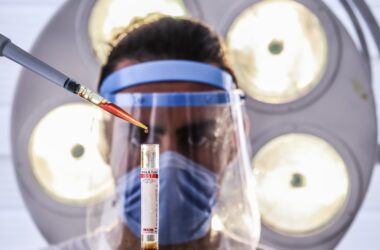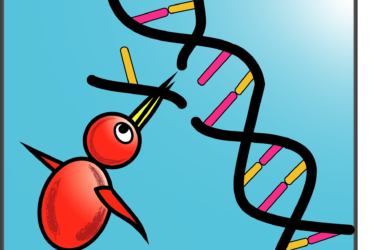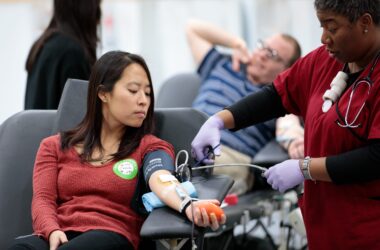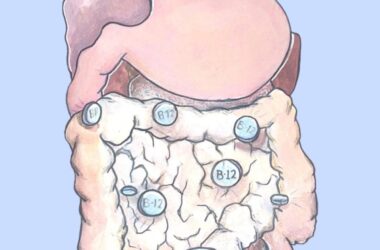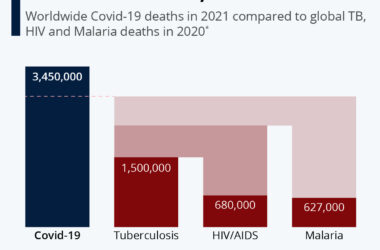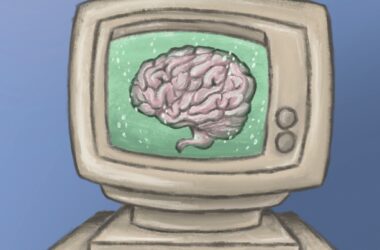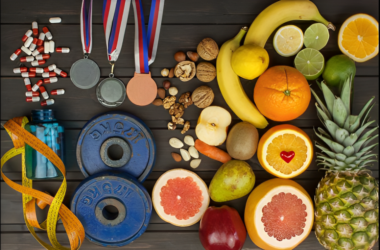Eleven thousand seven hundred years ago, Earth exited the last major geological epoch—the Ice Age—entering a period of relative warmth and stability, called the Holocene. Researchers, however, believe that the planet is ready for a new term: The ‘Anthropocene,’ denoting a time during which humans drive substantial change to our[Read More…]
Science & Technology
The latest in science and technology.
Science in the city: ALL IN 2023 unveils future of AI in Montreal
On Sept. 27 and 28, Montreal hosted ALL IN 2023, a conference bringing together industry specialists and cutting-edge researchers in the field of artificial intelligence (AI) at the Palais des Congrès de Montréal. Experts gave speeches and participated in panels on a wide variety of topics, including AI’s impact on[Read More…]
Analysis finds COVID-19 has now infected three-quarters of Canadians
Although the Omicron COVID-19 variant emerged in November 2021, scientists are just beginning to trace how the massive surge of infections unfolded by testing blood samples from throughout the pandemic. This is because antibodies against COVID-19 can be detected in blood for months after an infection. The analysis was led[Read More…]
“Seeing” viruses in real time
During the height of the COVID-19 pandemic in January 2022, when thousands of people were getting sick every day, healthcare professionals were worked to the bone. One particularly difficult task in preventing the spread of COVID-19 was contact tracing. In other words, finding out who was sick and how they[Read More…]
McGill iGEM takes on innovative synthetic biology research
Many undergraduate students desire to delve into research at McGill in labs led by primary investigators and professors. Undergraduates themselves, however, have equally promising initiatives to lead exciting investigations. One of these student groups, McGill iGEM, is an undergraduate synthetic biology research team that has made impressive progress in recent[Read More…]
McGill students unite with Héma-Québec: From blood donations to saving lives
Every 80 seconds, someone in Quebec needs blood. Héma-Québec, which marks its 25th anniversary this month, has been the unwavering supplier of blood products, human tissues, and other crucial donations to Quebec’s healthcare system. Their relentless efforts have long been amplified through partnerships with local communities. One such collaboration was[Read More…]
Is vitamin B12 supplementation always good for you?
The global vitamin B12 supplement market is poised for significant growth in the upcoming years. Although daily oral vitamin B12 supplements typically contain doses far exceeding the recommended amount, the impact of such high levels of vitamin B12 on gut health remains unclear. In a recent paper, Samantha Gruenheid, Chair[Read More…]
“A Disease of the Past”: Our lacklustre response to Tuberculosis
Lena Faust, a Ph.D. student in epidemiology at McGill, first became interested in tuberculosis (TB) while learning about another disease: COVID-19. What caught her attention, however, were not the diseases themselves, but the difference in global response to each. “With COVID-19, we quickly developed lots of different vaccines that are[Read More…]
AI’s transformative impact on radiology: Insights from the Feindel Brain and Mind Lecture
Artificial intelligence (AI) has taken the world of healthcare by storm, revolutionizing the way physicians diagnose and treat medical conditions. The Feindel Brain and Mind Seminars featured radiology—an area that AI has impacted substantially—during its Sept. 13 event hosted at The Montreal Neurological Institute-Hospital. Saurabh Jha, Associate Professor of Radiology[Read More…]
McGill nutritionist shares sports nutrition tips at Trottier Symposium
McGill hosted the 2023 Trottier Public Science Symposium, “Ready, Set, Go! Use and Abuse of Science in Sport,” on Sept. 13-14 in Moyse Hall. The symposium featured talks by renowned experts who offered their perspectives on nutrition and the broader role of science in sports. One of the talks was[Read More…]


